 How much practice should a junior or college golfer do if they want to become a top ranked amateur, or become a professional tour golfer? It’s a great question and I suppose you could answer it by simply saying “a lot,” or “many hours,” or possibly “more than everyone else.” Pretty vague though, don't you think? None of these answers will help you to understand the answer. Specifically how many hours should you practice to become a top ranked amateur or professional golfer? The answer to this question depends on two main factors;
If you look at 7 days in your week and calculate the average available daylight hours (different depending on where you live and the time of the year) you have available to you it is fair to say that you have at the very least 8 hours per day of daylight and 56 hours in a week. So how much time do you need to spend developing your craft out of the 56 or so hours you have each week? If you are serious about becoming a top ranked amateur or professional golfer then we would tell you that you need to practice for a minimum of 20 hours each week working on improving your golf skills. On top of this you will need to spend another 10 or more hours per week on the golf course developing your playing skills when you are not competing in tournaments. Yes, you will need to practice for 30 hours or more each week. Don’t believe me? Then have a look at our Elite Golfer Improvement System model below that describes the 18 core golf skills that you need to practice to develop your game to the highest level. How many of these 18 golf skills are you NOT practicing every week? On the top row there are 18 different types of golf skills in 6 different performance categories from short-game to long-game and also on the golf course that need to be practiced. We call these the 6 golf practice pillars and they are the foundation skills that you build your game upon. Olympic athletes typically spend 4 to 5 hours per day for 6 days per week training and preparing for upcoming events, and they will do this for 8 or more years. Olympic champion Michael Phelps (22 Olympic medals) trained for 6 hours per day 6 days per week for more than 10 years. And he used to train on Christmas day! How Much Practice Does Tiger Woods Do in a Day? Tiger Woods golf practice and physical training routine is quite intensive when he’s not competing at tournaments. The following routine was posted on his website at http://www.tigerwoods.com/fitness/tigerDailyRoutine and gives you an idea what the best golfer in the world does with his available hours when he's home. In the example below Tiger trains from 6.30 in the morning to 7pm at night, a total of 720 minutes a day, which translates into a solid 12 hour day! Notice that 7 to 8 hours of this daily routine is devoted to golf skills development, which includes full-swing, short-game and golf course practice. OK, that's great for Tiger I hear you saying but I go to high school or college and I don’t have 30 available hours each week to devote to my game, what then? If you are a junior golfer or college golfer then you are not really that different to Olympic athletes who go to school or college and have to still find the time to practice or train right?. You can practice before class and also after class and you would be surprised how many hours you can actually devote to practice over 5 or 6 days if you really want to. No serious golfer is exempt from practicing for at least this amount of hours each week if they truly wish to become a top class golfer. But having said that if you simply cannot devote the 30 or more hours required, then be sure to read the rest of this article to find out how to do less practice but gain more from each practice session. The 18 Core Golf Skills Practice Log Take a moment now and assess how much time you spend in the 18 core golf skills in the following table. Write them down on a piece of paper and work out about how many minutes each day you spend practicing the 18 core golf skills and then total them up for a week. This log below is a really simple way to determine how much time you actually spend on each of the 18 core golf skills. In the example below you can see the amount of time this college golfer spent at each skill over a week for a total of 10.5 hours of practice for the week. Now 10.5 hours of practice is a long way from 30 hours right? But what if you could practice just 10 hours per week but get the benefits of 30 hours of practice? I bet that would be something that would interest you? To find out how this is possible start by using this simple golf skill time log below to help you to understand where you spend most of your available time on your game each week, and also whether you are not practicing some of the skills in other important skill categories. In the following example this college golfer practices 13 of the 18 golf skills. Of the 5 skills that she doesn't practice 3 of them are skills she is very week at, (rough shots and golf course mapping and strategy) and this actually has a huge effect on her performances in tournaments. Just in case you were wondering, the golf course mapping and strategy skills (red category) are your golf tournament preparation skills, this is where you go out to the golf course that you are playing your next tournament at to chart each hole carefully to develop the best game plan possible based on your current strengths and weaknesses. Golf course attitude describes your daily mental skills practice on the golf course where you are working on skills such as your pre-shot routine, your self-talk and your visualisation routines etc. 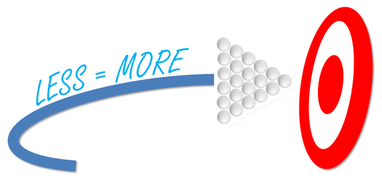 The Less = More Golf Practice Strategy The key to practicing less hours but with much better results revolves around a simple yet highly effective golf practice strategy we call the Less = More Golf Practice Strategy, and it basically works by doing the following 3 things.
We have found that this simple strategy is by far the best way for junior and college golfers with limited time on their hands to gain a great deal more from their practice sessions, and by using the Less = More Golf Practice Strategy and by breaking up each hour of practice into 4 unique time periods of 15 minutes each you will dramatically improve the quality of your golf practice and achieve much better results because of it. 1 x 10 x 100² We have a really simple way of describing how the Less = More Strategy works and its called the 1 x 10 x 100 squared rule. Basically our rule says that every golf shot you hit is performed with your absolute best level of attention, commitment and focus and that one golf shot multiplied by 10 balls multiplied by 100 squared describes the secret to success in practice. 1 quality golf shot x 10 quality golf shots x 100 quality golf shots squared is a lot of golf balls hit with very high level of quality. This is the key to your golf success!
This is the Less = More Golf Practice Strategy! You see, you can just stand on the driving range pounding golf shot after golf shot mindlessly and yes you might more golf shots than you would using the Less = More Golf Practice Method, but you will never be as good as you want to be doing it this way. This is one of the main reasons we find that many junior golfers and college golfers don't improve. They hit a wall with their improvement and struggle to break through. Hitting lots of golf shots mindlessly at a driving range without a definite plan for improvement because you are under the mistaken belief that hitting lots of golf balls will make you a lot better is a BIG MISTAKE. However by hitting 10 ball sets (10, 10, 10, 10...) with your full focus on isolating each shot (1, 2, 3, 4...) and by reducing your time time window down to 15 minutes for each skill set will develop each of your golf skills faster and this will lead you to lower golf scores and improved performances in tournaments. And the best part is that you will be able to practice the 18 core golf skills in less time but with more improvement! This is exactly why we developed the Elite Golfer Improvement System (E.G.I.S) below primarily for serious junior golfers and college golfers. We designed the E.G.I.S program to teach you how to do more quality practice in a lot less time by developing your 18 core golf skills correctly so you are able accelerate your golf skill improvement. We have discovered that when junior and college golfers with limited time to practice learn how to practice by designing their practice sessions around focused 15 minute windows that they perform a lot better in their tournaments.
So why don't you apply the Less = More Golf Practice Strategy to every practice session from now on and you will discover that you can practice a lot less hours but gain a lot more from each practice session. Remember that the quality of your golf practice is far more important than the amount of golf balls you hit, so practice the Less = More way and you will enjoy the process of improvement that will surely come to you as a result of using this accelerated golf practice success strategy. Lawrie Montague and David Milne - Pro Tour Golf College Your Success On Tour is Our Business
"Old golfer"
18/1/2014 08:21:42 am
Hi, nice to read all your good articles. 18/1/2014 08:38:57 am
Thanks so much for your question. We have an enormous amount of golf training resources (tools) that we have developed and we share some of our templates in our articles but we have many more. They help us to show you structured ways of assessing different aspects of your game. I'm glad you enjoy our articles and appreciate you taking the time to ask your question.
"The old one"
18/1/2014 01:25:56 pm
Thank´s. 18/1/2014 10:12:48 pm
Yes the E.G.I.S program comes with 10 different unfilled templates that you record your results in. Not the same as the examples in my article, though, they are quite different.
On of the old ones
19/1/2014 08:20:29 am
Ok, thx
Rio
19/1/2014 11:38:04 pm
this is a very good article, i think all serious golfer should do and follow the progam.. thanks 24/1/2014 12:42:19 pm
Thanks for your comments Robert. Comments are closed.
|
Archives
June 2019
|
Proudly Supported By
Copyright © 2011 - 2018 Pro Tour Golf College
Website Managed By Golf Performance Media
All Rights Reserved
Website Managed By Golf Performance Media
All Rights Reserved

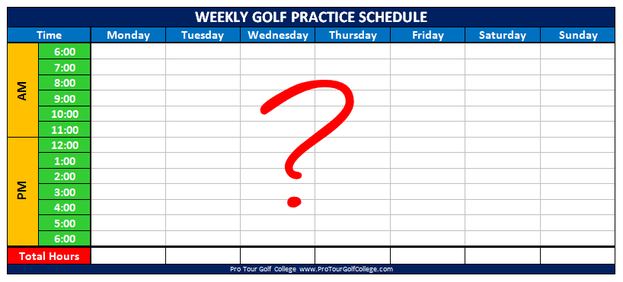
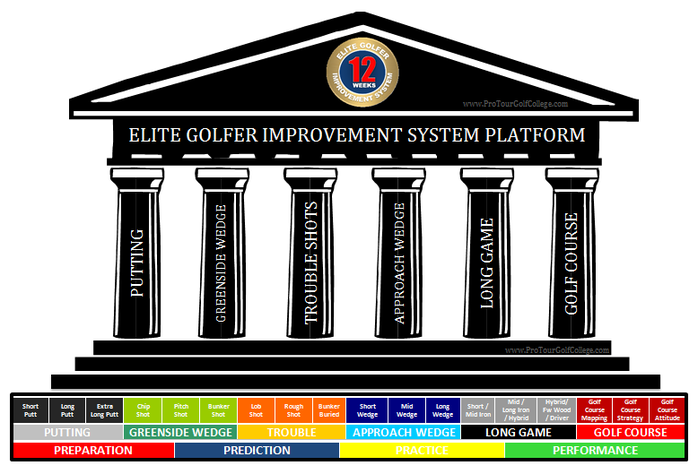
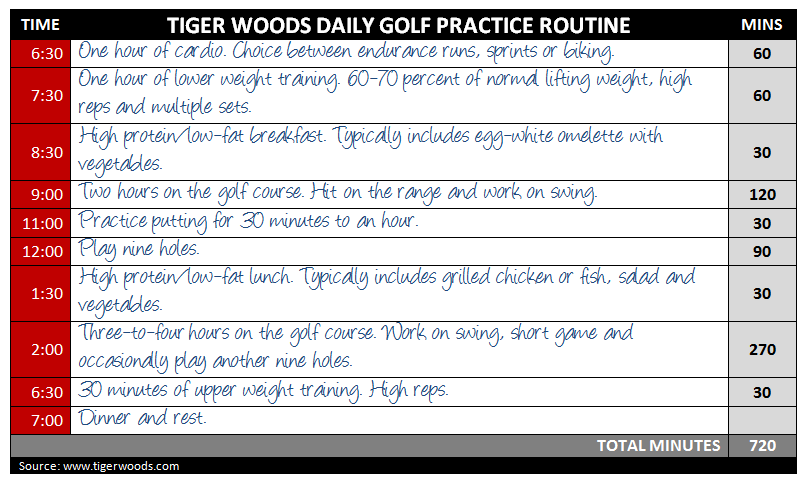
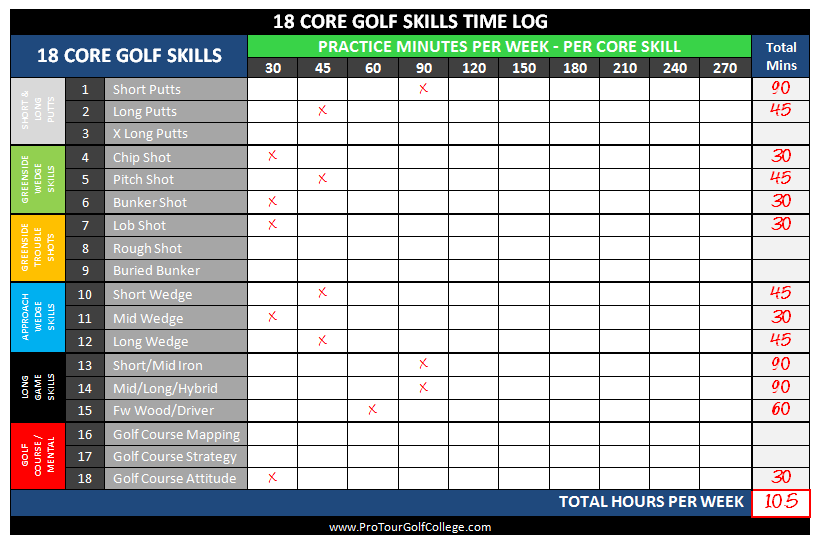
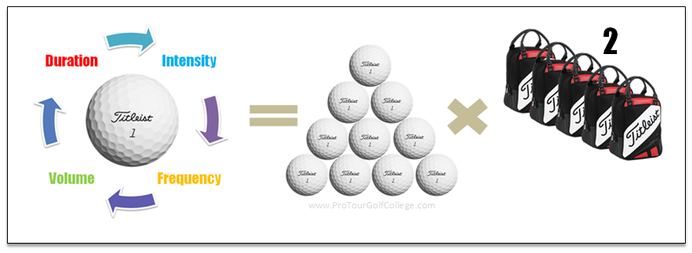

 RSS Feed
RSS Feed



